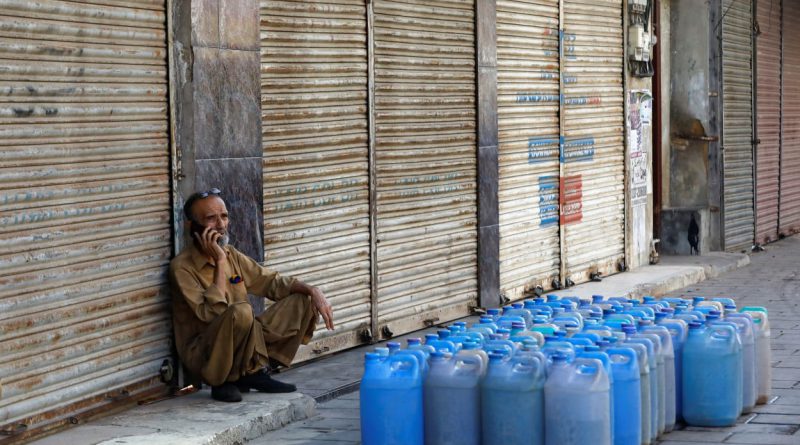Pakistan central bank keeps key rate steady, sees inflation easing gradually
Karachi (Reuters) – Pakistan’s central bank kept its key rate unchanged at 22% on Monday after a scheduled meeting of its monetary policy committee, with inflation expected to decline gradually in coming months, the bank’s governor said.
Governor Jameel Ahmad told a press conference that the inflation outlook for the next fiscal year was between 20% and 22%, in line with government projections and that Pakistan’s deal with the International Monetary Fund (IMF) had not necessarily required a further rate hike.
“The IMF did not say anywhere that we have to increase rates,” Ahmad said. “They said the policy stance should be aggressive and we will go forward with an aggressive policy stance.”
The monetary policy committee meeting was the first since a new $3 billion bailout was approved by the IMF earlier this month for the ailing economy that had been teetering on the brink of a global debt default.
“The State Bank of Pakistan is comfortable that developments in the last few weeks will help stabilise the economy and, in spite of higher energy prices, inflation will come down,” said Mohammed Sohail, chief of Karachi-based investment house Topline Securities.
Ahmad said Pakistan was on “on course” to meet the medium-term inflation target of 5-7% and that the bank would ensure it complied with the IMF requirement of keeping the open market and interbank rates for the currency close to one another.
The IMF signalled following the bailout that the bank must continue with its monetary tightening cycle to tame inflation.
The State Bank of Pakistan (SBP) has raised its key policy rate by 12.25 percentage points since April 2022 to curb soaring inflation.
The rise in the consumer price index rise slowed in June from a record high of 38% year-on-year in May, but remained elevated at 29.4%. The CPI index decreased 0.3% in June from May.
The government projects inflation to average 21% for the current fiscal year that started on July 1. The IMF, however, forecasts inflation at 25.9% for the same period.
Pakistan’s central bank raised the key rate by 100 basis points to 22% in an off-cycle meeting in June, just weeks after having held rates at a scheduled meeting.
The bank noted on Monday that economic uncertainty had decreased since the last meeting, while near-term external sector challenges have been largely addressed and investor confidence had improved. It projected real GDP growth of between 2% and 3% for this fiscal year.
Pakistan’s government said the rates had been increased on the IMF’s demand in the run-up to the approval of the new bailout agreement.


